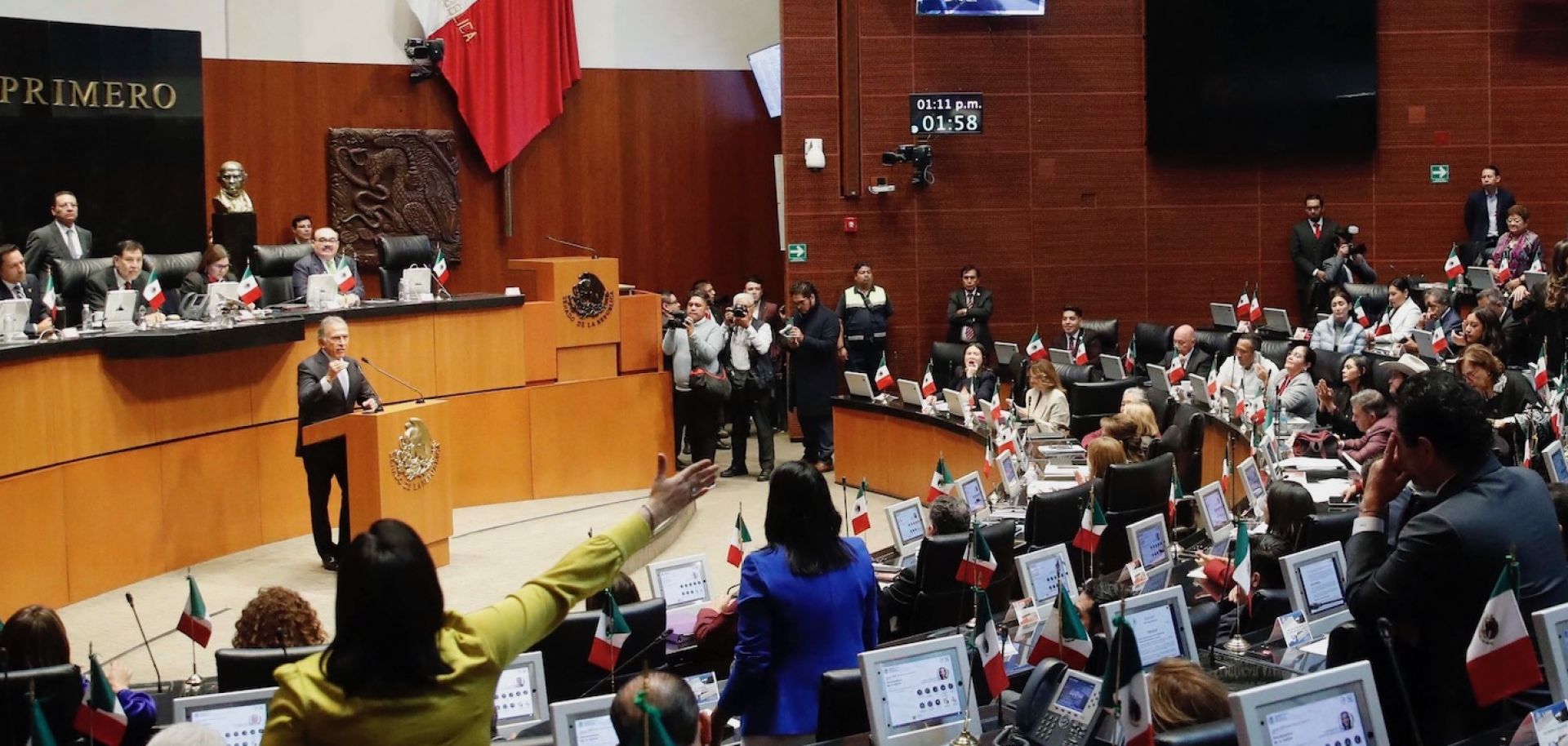Mexico's government will likely concentrate power and introduce interventionist policies that will increase operational costs for companies and inefficiencies in the economy, but structural drivers behind geopolitical realignments will continue to underpin foreign investment inflows in the long term. Nov. 1 marked President Claudia Sheinbaum's first month in office and the second month of the new legislature dominated by the ruling coalition. Throughout September, government allies leveraged their two-thirds majority in the Chamber of Deputies and their comfortable lead in the Senate to rush parts of a package of 18 constitutional reforms that then-President Andres Manuel Lopez Obrador presented in February -- dubbed "Plan C." Out of that package, the most controversial and consequential proposal was the judicial reform, which Congress approved and Lopez Obrador enacted in just two weeks on Sept. 15. In his last day in office on Sept. 30, the former president also signed into law two...

